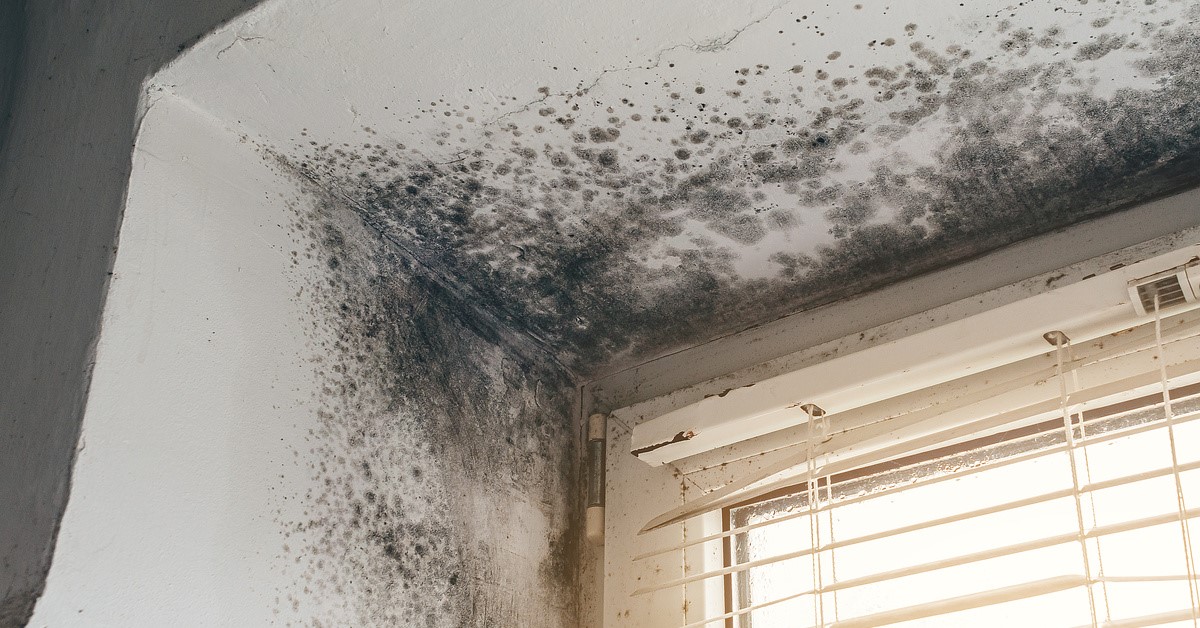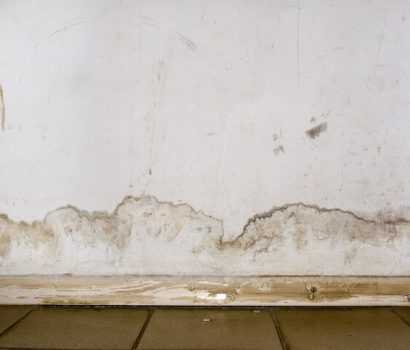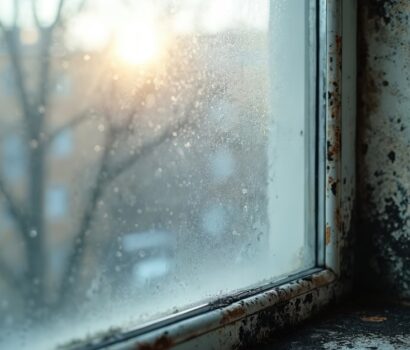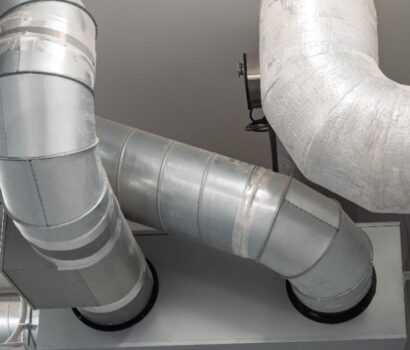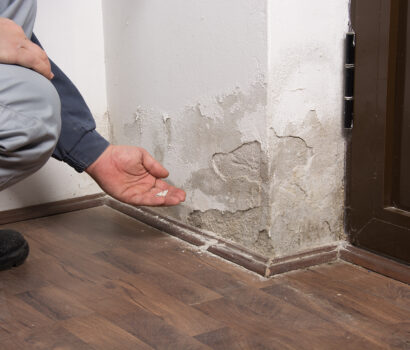If you own a home in Pittsburgh, you know the city’s damp climate can work against you, especially when it comes to black mold. Those hot, sticky summers and gray, rainy winters mean moisture sneaks indoors and clings to every cold surface. It doesn’t help that so many of the city’s houses are over a century old with quirky basements and less-than-perfect ventilation.
In this guide, you’ll learn how to identify, clean, and prevent black mold in climates like Pittsburgh’s. We’ll dive deep into the risks, weigh DIY vs. professional mold remediation, and offer region-specific tips to keep your home safe.
Identifying Black Mold in Pittsburgh Homes
Spotting black mold early is your best defense against costly repairs and health hazards. The trick is knowing what to look for and where trouble usually starts. Here are some common signs of black mold:
- Color: Black mold most often appears dark green, black, or even dark gray. You’ll find it as fuzzy splotches or slimy patches, sometimes surrounded by water staining.
- Texture: It might feel slimy, velvety, or even powdery if it dries out.
- Scent: That telltale musty smell is a giveaway. Think “damp basement” but sharper and oddly sweet.
- Check for peeling paint, warped drywall, or dark streaks in humid parts of your house. Don’t ignore mold on window sills or behind heavy furniture.
Most Common Places to Find Black Mold in Pittsburgh
- Basements: Especially those with stone walls or poor drainage.
- Bathrooms & Laundry Rooms: Watch for leaky pipes and sealed-in humidity.
- Attics: Blocked vents or roof leaks invite trouble.
- Crawlspaces: Where moisture collects undisturbed.
- HVAC Systems: Mold loves coils and condensate pans.
If any of these spots in your home are showing visible mold or smell musty, now’s the time to schedule a professional inspection. Our Pittsburgh-based team at Bactronix can evaluate your situation and get ahead of larger repairs.
With Pittsburgh’s rivers and fluctuating seasons, older homes and those near the water are even more prone to sneaky moisture intrusion. If you find streaks or stain marks on walls and ceilings after heavy rain, that’s another red flag.
Understanding the Health Risks of Black Mold
Mold isn’t just an eyesore. It’s a serious health threat, especially for children, seniors, and anyone with asthma or allergies. Staying informed is the first step to keeping your household safe.
Short-term symptomsinclude persistent cough, headaches, sneezing, scratchy throat, nasal congestion, skin rashes, and watery eyes. Long-term exposure can lead to chronic asthma, bronchitis, and even neurological symptoms in rare cases.
Even healthy adults can feel run down after weeks living with mold spores. If you notice unexplained sniffles, irritated skin, or headaches every time you spend a few hours in the basement, don’t brush it off.
DIY vs Professional Mold Remediation in Pittsburgh
Should you grab a scrub brush or call in the pros? The answer depends on the mold’s size, location, and your own comfort with risk, and there are a few local factors to think about.
Pros and Cons of DIY Mold Removal
Cost of DIY is cheaper with supplies running between $25–$100 for PPE, cleaning products, and tools.
Time is another factor. Small projects might only take a few hours, but you’ll need at least a weekend for a full basement or bathroom.
DIY involves greater health risks. Without proper gear or ventilation, you risk inhaling spores or spreading mold throughout your home. Wrong techniques (like using a household vacuum) can make things worse.
If you’re a landlord, you have to consider legal aspects as well. Landlords in Pennsylvania must repair water damage and address serious mold quickly if tenants report it. Ignoring complaints could land you in legal trouble or void lease agreements.
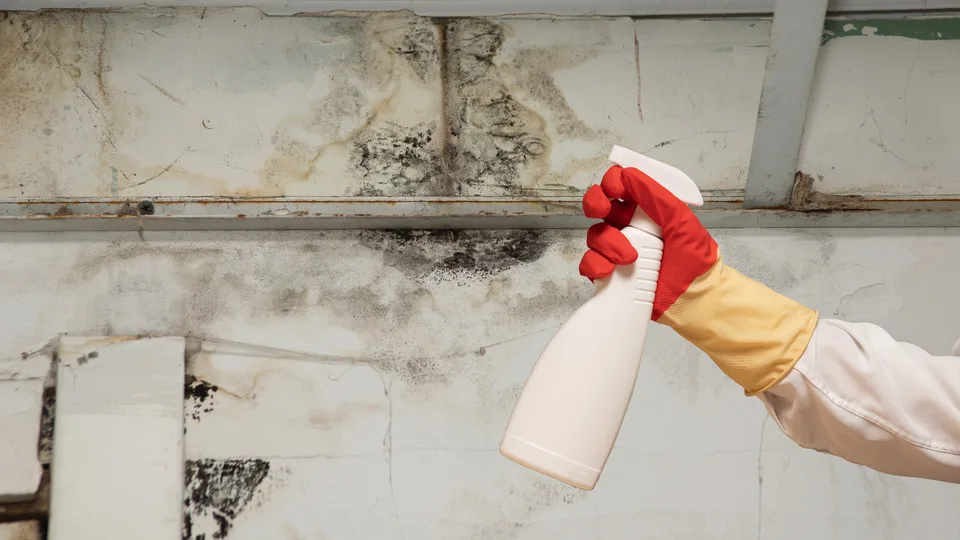
When to Call a Professional Mold Removal Service
If the mold covers more than 10 square feet (roughly a 3×3 area), is inside HVAC ducts, or keeps returning despite repeated cleaning, it’s time for professional help.
Average cost in Pittsburgh (as of 2025): Basic remediation runs $500 to $5,000 or more, depending on the scope.
When evaluating mold removal companies, here are some important questions to ask:
Are you licensed and insured for mold remediation in Pennsylvania?
What’s your process for containing and removing black mold?
Will you provide before-and-after air quality testing?
Can you share recent local references?
Top Pittsburgh Mold Companies
Reliable local remediation companies include Bactronix, EnviroPure, and Servpro.
How to Clean Black Mold: Step-by-Step Guide
Ready to tackle a small mold job on your own? Take safety seriously and follow these steps to protect your health and home.
Step 1: Preparation and Safety Equipment
- N-95 or P100 respirator mask
- Goggles without ventilation holes
- Nitrile gloves and long sleeves/pants
- Plastic sheeting and painter’s tape to seal doors/vents
Step 2: Clear out valuables. Remove rugs and cover electronics. Open a window for airflow but avoid fans that can scatter spores.
Step 3: Start the Cleaning Process
- Wear PPE and seal off the work area with plastic.
- Scrub non-porous items with a 1:10 bleach solution OR spray affected surfaces with undiluted white vinegar and let sit for one hour before scrubbing.
- Rinse surfaces with warm water and dry thoroughly with disposable towels.
- Bag and discard all rags, sponges, and PPE after use. Seal trash tightly and take it to an outdoor bin.
Step 4: Prevent Cross-Contamination and Exposure
- Keep doors and vents shut during cleaning.
- Change and shower as soon as you finish. Wash clothing in hot water.
- Use HEPA vacuums to clean dust after the project is done.
- Never eat, drink, or touch your face in the work area.
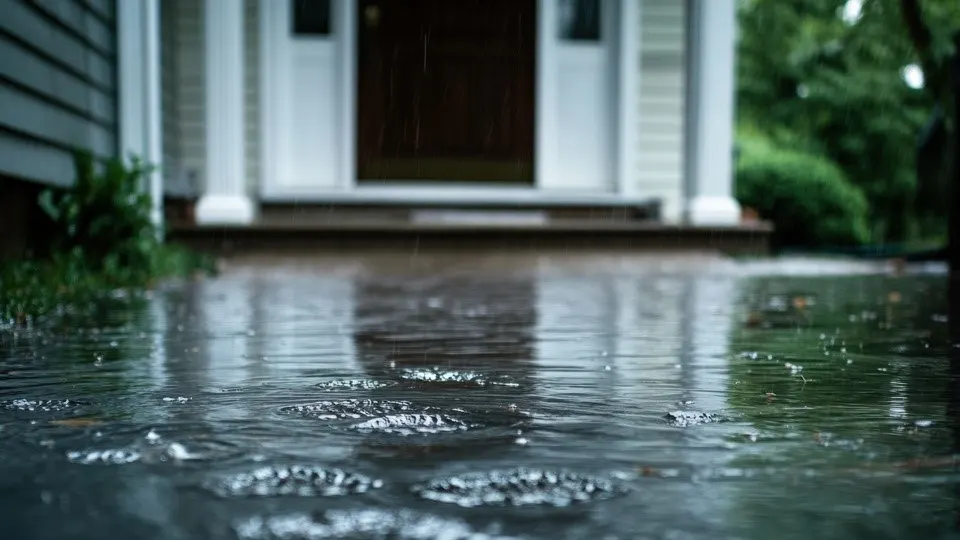
Pittsburgh-Specific Tips for Homeowners
- Use dehumidifiers in basements and keep relative humidity below 50%
- Fix or replace old single-pane windows prone to condensation.
- Many Pittsburgh homes have trapdoors to cellars or uninsulated crawlspaces. Air these spaces periodically and consider vapor barriers to keep ground moisture from seeping up.
- Repair foundation cracks and check gutters/downspouts after every winter thaw.
- Check basement walls, floors and windows as seasons change.
Frequently Asked Questions (FAQs)
With enough moisture, black mold can colonize a damp surface in 24–48 hours. If conditions remain humid, it will spread fast.
Tiny, contained patches (smaller than a sheet of paper) are manageable if cleaned immediately. For anyone with allergies or chronic health issues, aim for a mold-free home and avoid risk.sements.
Persistent mold points to ongoing moisture problems. Address the underlying cause like leaks, humidity, or poor ventilation.
Most standard homeowners’ policies exclude mold damage caused by neglect or long-term leaks. Sudden, accidental water damage (like a burst pipe) may be covered. Read your policy and ask your insurer directly.
Struggling with Black Mold in Pittsburgh? Bactronix Can Help
Taking care of black mold yourself is possible for very small quantities, but it’s still risky. Not only to your health, but you also run the risk of spreading it throughout your house. If you think you have a black mold issue, give us a call. We have helped countless Pittsburgh residents solve their mold issues safely, quickly and affordably.
